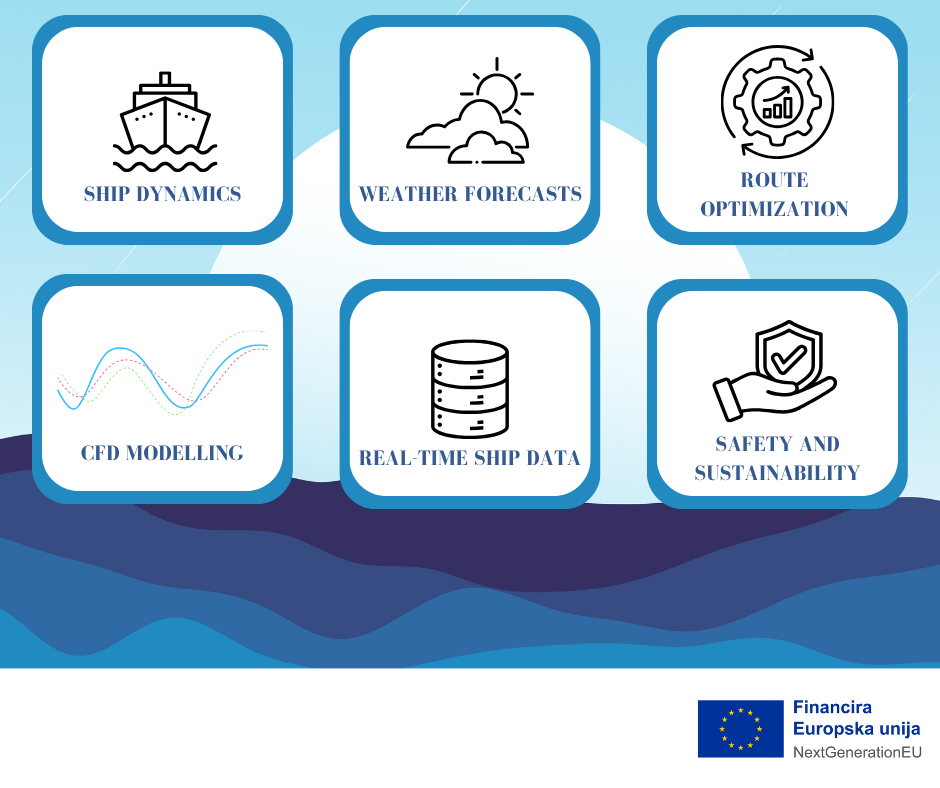Project is funded by European Union – NextGenerationEU

The proposed research aims to develop an advanced Vessel Eco-friendly Dynamic Route Optimisation with Ship Dynamics Awareness (VEDRO) system by integrating the knowledge of ship seakeeping, weather forecasts and forecast uncertainties to improve maritime route planning. The system aims to optimise fuel consumption, increase safety and promote environmental sustainability by adjusting ship routes in real time. This will be achieved through the use of real-time ship motion data, machine learning application, CFD simulations and variable environmental data. The research also includes the development of operational seakeeping criteria limits based on the analysis of questionnaires conducted among ship officers. Based on their experiences and observations, new operational limits for navigation comfort and safety will be defined.
The main focus of the project is the integration of real-time ship motions under different sea conditions together with appropriate seakeeping criteria limits into the route optimisation process. Pre-calculated seakeeping characteristics based on CFD simulations will form the basis of the ship motion model.
The optimisation algorithm will also take into account the uncertainty of weather forecasts, which can have a significant impact on route planning. By analysing multiple weather scenarios and taking forecast inaccuracies into account, the system will suggest alternative routes that strike a balance between the reliability of the forecast and the potential risks due to changing conditions. This will enable captains to manage the ship more efficiently even when weather forecasts are uncertain.
The results will be integrated into a Decision Support System (DSS) that will provide captains with route recommendations based on real-time data on fuel consumption, greenhouse gas emissions, weather forecasts, seakeeping criteria and safety warnings. This research will improve the sustainability of maritime transport by reducing fuel consumption and greenhouse gas emissions as well as enhancing navigation safety in changing and unpredictable environmental conditions.
Head: Prof. PhD Jasna Prpić-Oršić, Faculty of Engineering, University of Rijeka
Associates:
Assoc. Prof. PhD Vedran Mrzljak, Faculty of Engineering, University of Rijeka
Assoc. Prof. PhD Anton Turk, Faculty of Engineering, University of Rijeka
Assoc. Prof. PhD Marko Valčić, University of Zadar
Assoc. Prof. PhD Kenji Sasa, University of Kobe, Japan
Assist. Prof. PhD Luca Braidotti, Universita di Trieste, Italy
Prof. PhD Odd Magnus Faltinsen, Norwegian University of Science & Technology (NTNU), Trondheim, Norway
Luka Mudronja, SeaQuest Shipmanagement
Ivan Sulovsky, Faculty of Engineering, University of Rijeka
Marijana Marjanović, Faculty of Engineering, University of Rijeka